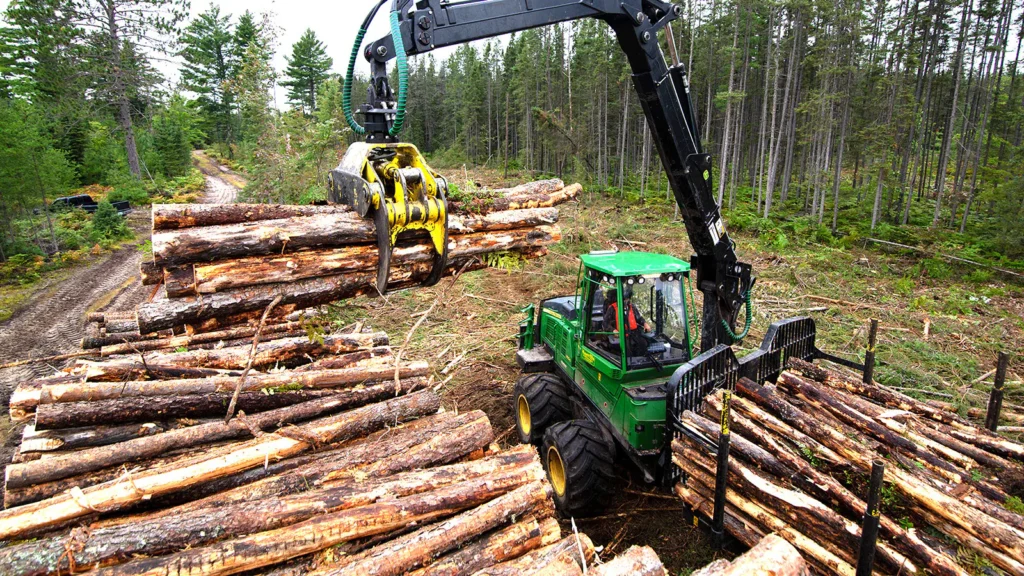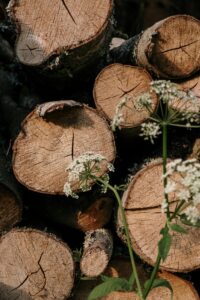
Undergraduate
Programmes leading to a qualification in Forest and Wood Science:
Forest And Natural Resource Science
Silviculture

Silviculture is the science to manage forests to optimise timber production taking into account how trees grow on different sites, which species are best suited to certain areas and how human interventions, such as e.g. thinning and vegetation management affect the tree growth. It also deals with tree propagation and the genetic improvement of forestry species.
Forest Management

Forest management deals with aspects of forest inventory and the assessment of the available resources through mensuration. Sampling techniques and remote sensing technologies will be explained, as well as planning and modelling tools.
Forest Economics

Forest economics deals with the business environment of forestry operations and relevant policies of the sector.
Remote Sensing

The use of remote sensing and geographic information systems is increasingly used in Forest management. The modelling and interpretation of the data through pattern recognition and other imaging techniques will be explained.
Forest Engineering

Forest engineering deals with the harvesting and transport issues, as well as road construction in plantations.
Wood Product Science
Wood Properties

Wood properties are affected by the structure and the type of wood, which is described by the wood anatomy. The chemical composition of the cell walls affects the physical and mechanical properties of the wood and changes heavily between and within trees.
Solid
Wood

The processing of trees into solid wood products (sawmilling) and their mechanical properties will be discussed, as well as requirements for various structural wood products.
Wood based Material

Wood is used in many other materials, ranging from particle boards, over paper and cardboard to fillers in bread and toothpaste. All these composite materials and their production methods will be covered.
Business Management

The financial aspects of the Wood Products industry is covered by several modules from the Department of Industrial Engineering and entrepreneurship courses will be offered.
Wood Engineering

The necessary engineering background for materials / wood Science is given through various engineering modules, such as engineering drawings, programming, strength of materials and statistics.
Looking to learn more about your degree?
You can find detailed information about the Forestry and Wood Sciences programme in the 2025 Faculty of AgriSciences Yearbook. Check out the relevant section to see what the degree covers, including module outlines, requirements, and more.
Q&A
Please have a look at some answers to your questions:
A: This BSc degree focuses on sustainable management and utilization of forest resources. You can specialize in Forestry and Natural Resource Sciences (managing forests and natural ecosystems) or Wood and Wood Products Sciences (understanding wood properties and industrial applications).
A: Both specializations include compulsory practical work. Forestry and Natural Resource Sciences requires vacation practicals from your first to final year. Wood and Wood Products Sciences includes a one-week workshop practical in your second year.
A: You’ll need a minimum 60% average (excluding Life Orientation). Both specializations require strong performance in Mathematics and Physical Sciences (Physics and Chemistry), with specific minimum scores (Check the Agriscience yearbook). You also need to write the National Benchmark Tests (NBT).
A: Graduates can work in research, teaching, consultation, farm management, environmental management, and industrial plant management within agricultural and forestry companies, related industries, and government.
A: Visit the Department of Forest and Wood Science’s website: www.sun.ac.za/english/faculty/agri/forestry. For general admissions, check www.maties.com or call Client Services at 021 808 9111.
Thinking of studying Forestry and Wood Sciences? Get a real look at what this unique, future-focused degree is all about.
🎓 In two insightful videos, our lecturers share exactly what you can expect:
What you’ll learn throughout the degree
The skills you’ll gain — from lab work to field experience
Exciting career paths in sustainability, innovation, and industry
A glimpse into postgraduate opportunities and global impact